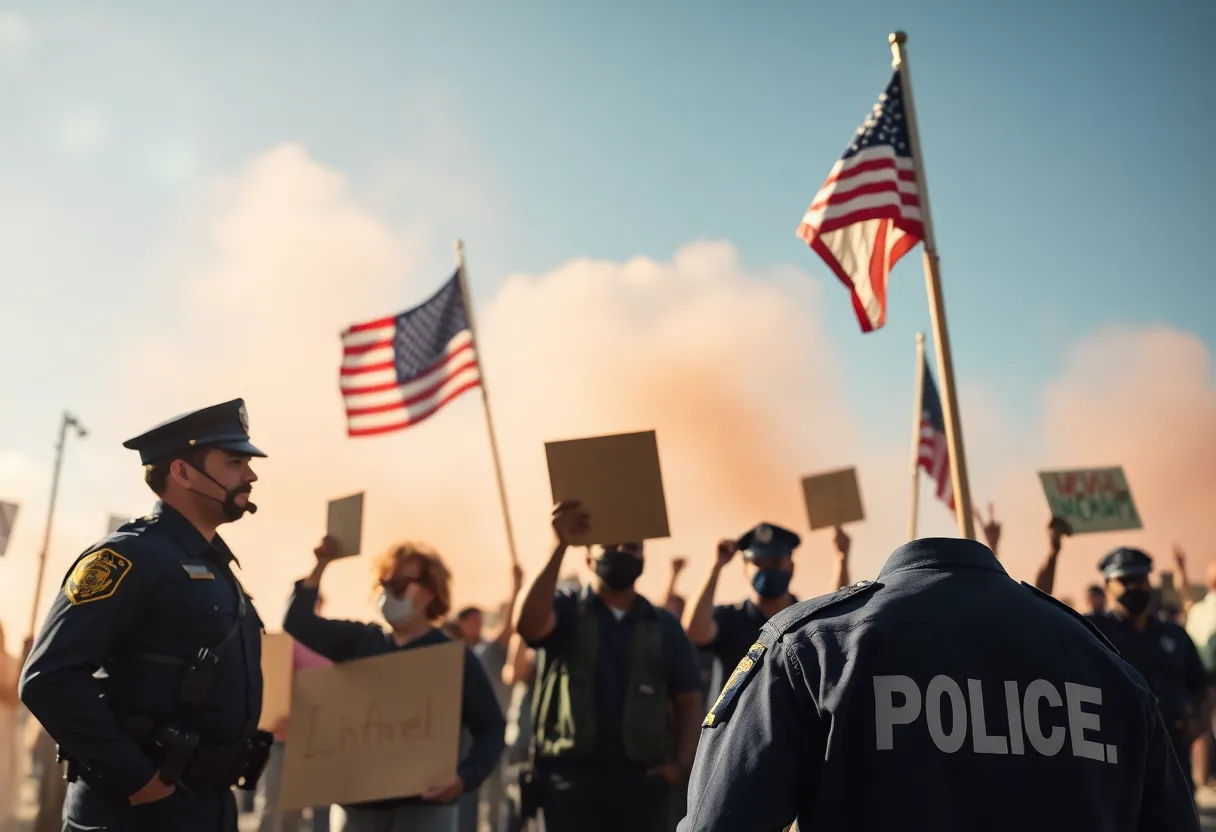News Summary
In a significant shift, the FBI has announced the termination of its partnership with the Southern Poverty Law Center (SPLC). This decision, influenced by critiques from conservatives including Elon Musk, stemmed from concerns about the SPLC’s perceived partisan bias, particularly its controversial hate map. The FBI, under Director Kash Patel, is reassessing its relationships with various civil rights organizations following rising tensions over extremism and violence, especially in the wake of a recent tragedy involving a conservative activist.
FBI Cuts Ties with the Southern Poverty Law Center
In a surprising move, the FBI has decided to end its partnership with the Southern Poverty Law Center (SPLC). This decision comes from criticisms, particularly from conservative circles, including influential figures like Elon Musk. FBI Director Kash Patel made the announcement via social media, stating that the SPLC has morphed into a “partisan smear machine”. This development is causing quite a stir as many wonder what it means for the future of civil rights organizations and law enforcement collaborations.
Why the Partnership Ended
Patel’s remarks pointed to the SPLC’s reputation, which he deemed “disgraceful”, suggesting this made the organization “unfit for any FBI partnership”. Criticism has mounted around the SPLC’s notorious interactive “hate map”, intended to identify groups involved in hate and anti-government activities. Many conservatives argue that the map inaccurately paints mainstream Americans as extremists, causing undue harm and fueling hostility.
This change in direction follows the tragic assassination of conservative activist Charlie Kirk. Kirk’s murder has led to intense scrutiny regarding how the SPLC has labeled certain organizations, specifically Kirk’s own group, Turning Point USA. In its report titled “The Year in Hate and Extremism 2024”, the SPLC categorizes Turning Point USA as a “case study in the hard right”, a characterization that has drawn ire from many in conservative circles.
The Pushback Against SPLC
In a remarkable display of unity among conservatives, many, including Musk, expressed their discontent with the SPLC, asserting that its labeling has contributed to a climate that incites violence towards individuals like Kirk. As the pressure mounted, the FBI found itself reassessing its relationships with civil rights groups it had previously collaborated with.
Interestingly, this isn’t the first time the FBI made such decisions. Just two days prior, the bureau also cut ties with the Anti-Defamation League (ADL) for similar concerns about perceived bias. This series of withdrawals indicates a significant shift in how the FBI is aligning itself under Patel’s leadership, especially regarding longstanding civil rights partnerships.
Historical Context of the SPLC and ADL
The SPLC and ADL have historically provided valuable research on hate crimes, domestic extremism, and training for law enforcement. Their insight has been crucial in understanding the dynamics of hate and bias in America. However, after Kirk’s assassination, there has been a call for a reevaluation of these ties, as some conservative lawmakers, including Senators James Lankford and Chuck Grassley, noted potential mischaracterizations of faith-based and conservative organizations as “hate groups”.
In response to the escalating backlash, the SPLC defended its work, emphasizing its mission to monitor hate and extremism for over 50 years, asserting their commitment to protecting civil rights. They argue that their data serves a greater purpose in combating violence and prejudice.
What’s Next for the FBI?
The FBI’s decision to reassess its connections with longstanding civil rights organizations raises questions about the future dynamics between these entities, particularly during a time when tensions surrounding issues of bias and extremism are at a high. This shift might serve as a crucial turning point in how law enforcement engages with groups that some perceive as out of touch or unfairly biased.
With rising concerns following high-profile incidents and the continuous political dialogue about extremism, it will be interesting to see how this new alignment affects the broader landscape of civil rights and law enforcement relationships moving forward. As we watch this story unfold, it’s clear that the conversation around hate, bias, and the role of organizations like the SPLC will remain pivotal in American society.
Deeper Dive: News & Info About This Topic
- The Hill: FBI Cuts Ties with SPLC
- Politico: FBI Ends Partnership with SPLC
- Reuters: FBI Cuts Ties with SPLC
- Al Jazeera: FBI Ends Partnership with SPLC
- Axios: FBI Cuts Ties with SPLC
- Wikipedia: Southern Poverty Law Center
- Google Search: FBI cuts ties SPLC
- Google News: FBI cuts ties SPLC
- Encyclopedia Britannica: Southern Poverty Law Center
- Google Scholar: SPLC FBI relationship

Author: STAFF HERE FLORENCE WRITER
The FLORENCE STAFF WRITER represents the experienced team at HEREFlorence.com, your go-to source for actionable local news and information in Florence, Florence County, and beyond. Specializing in "news you can use," we cover essential topics like product reviews for personal and business needs, local business directories, politics, real estate trends, neighborhood insights, and state news affecting the area—with deep expertise drawn from years of dedicated reporting and strong community input, including local press releases and business updates. We deliver top reporting on high-value events such as the Florence Festival of Lights, Pee Dee Pride, and agricultural expos at the Florence Center. Our coverage extends to key organizations like the Florence Regional Chamber of Commerce and the Pee Dee Area Council of Governments, plus leading businesses in healthcare and retail that power the local economy such as McLeod Health and Pee Dee Electric Cooperative. As part of the broader HERE network, including HERECharleston.com, HEREColumbia.com, HEREGreenville.com, and HEREHiltonHead.com, we provide comprehensive, credible insights into South Carolina's dynamic landscape.





